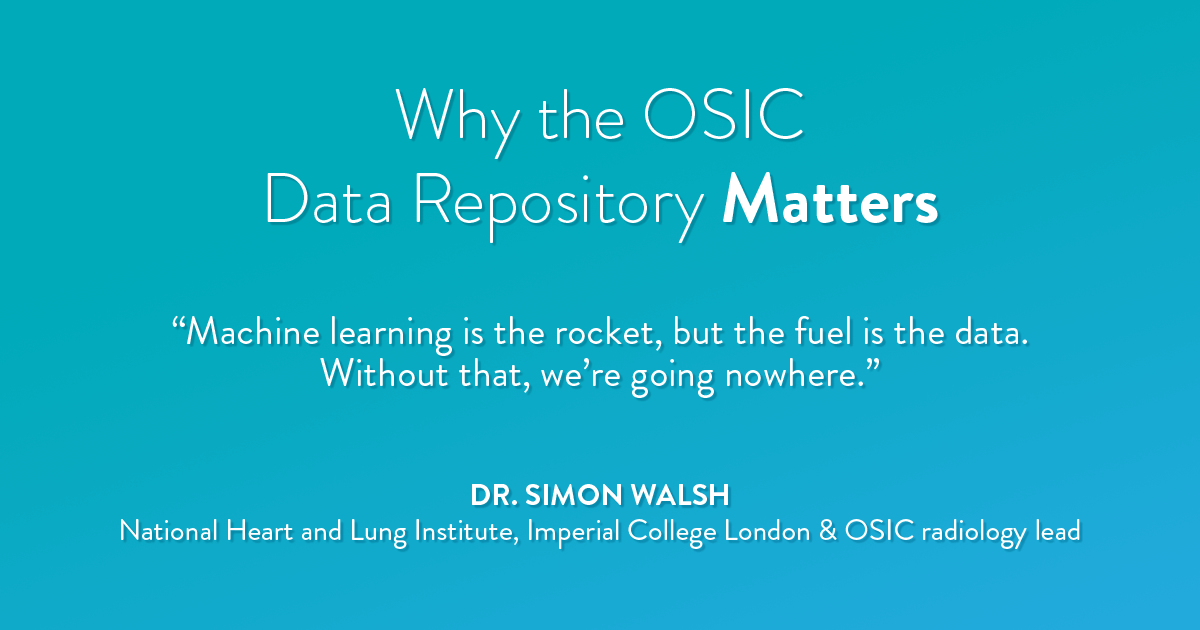|
In recent years, there have been significant technology innovations that are shaping the future of diagnostic imaging. AI as a supplemental lens for medical image analysis is on the rise, and its use has contributed to rapid developments in many disease states with regards to imaging-based diagnosis, prognosis and prediction of response to therapy.
But in order for AI to “do its job,” there needs to be enough data. And up until now, a major obstacle in harnessing this technology to study pulmonary fibrosis has been the lack of large, diverse imaging repositories needed to drive machine learning research. “Machine learning is the rocket, but the fuel is the data. Without that, we’re going nowhere,” said Dr. Simon Walsh, National Heart and Lung Institute, Imperial College London & OSIC radiology lead. The OSIC Data Repository is changing all of that. Our global, database of anonymized HRCT scans and clinical information regarding interstitial lung diseases (ILDs) is the world’s largest and most diverse of its kind, with a plethora of real world clinical and imaging data that is both multi-ethnic and multi-center. It currently houses close to 1,500 anonymized and quality-controlled scans with accompanying data, and has an additional 5,000 in the quality control queue. And we’re on track to reach our goal of 15,000 anonymized scans, available to OSIC members, by first quarter 2022. “Individual institutions may see several hundred cases (of pulmonary fibrosis) a year, but what we're looking for is thousands upon thousands of imaging data points or scans in order to drive this type of research,” said Walsh. “As a result of the OSIC Data Repository, we’re essentially looking at datasets that are similar in size to some of the big, longitudinal datasets seen in cardiovascular and lung cancer screening trials. That's the real excitement here. To be able to mine that kind of data using these new technologies.” And what’s the end result? “Being able to reliably predict how pulmonary fibrosis will progress in an individual patient would allow doctors to initiate appropriate treatment at the earliest opportunity and slow disease progression,” continued Walsh. “It remains one of the most urgent challenges for effective management for patients with fibrotic lung disease.”
Comments
|
Get the latest OSIC news delivered right to your inboxNo spam. Just news.
By clicking the 'Subscribe to OSIC News' button, you consent to receive news and promotional materials from OSIC and agree to the processing of your personal data for this purpose as outlined in our Privacy Policy. You can withdraw your consent at any time.
|
Copyright © 2024 Open Source Imaging Consortium (OSIC). All rights reserved.



 RSS Feed
RSS Feed

